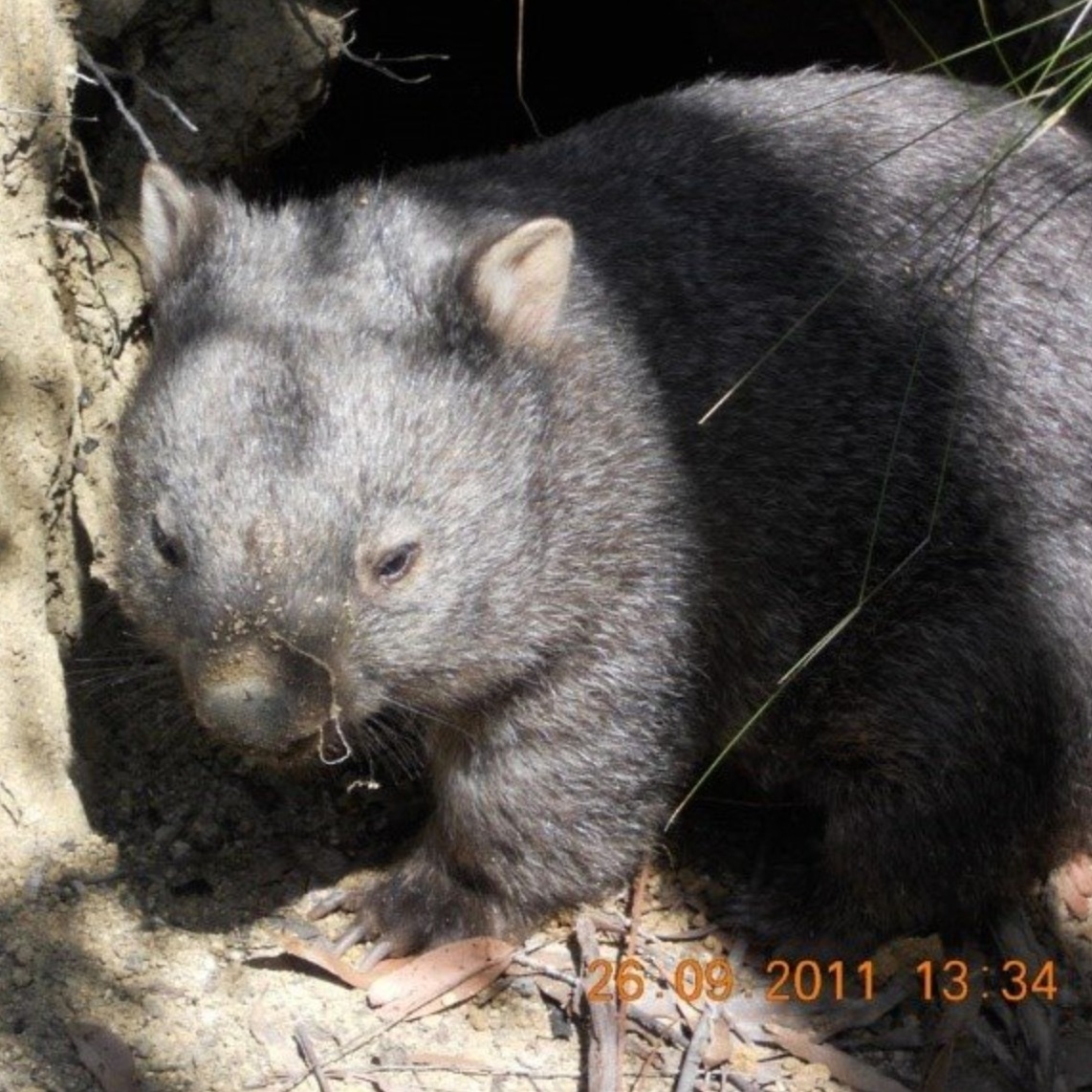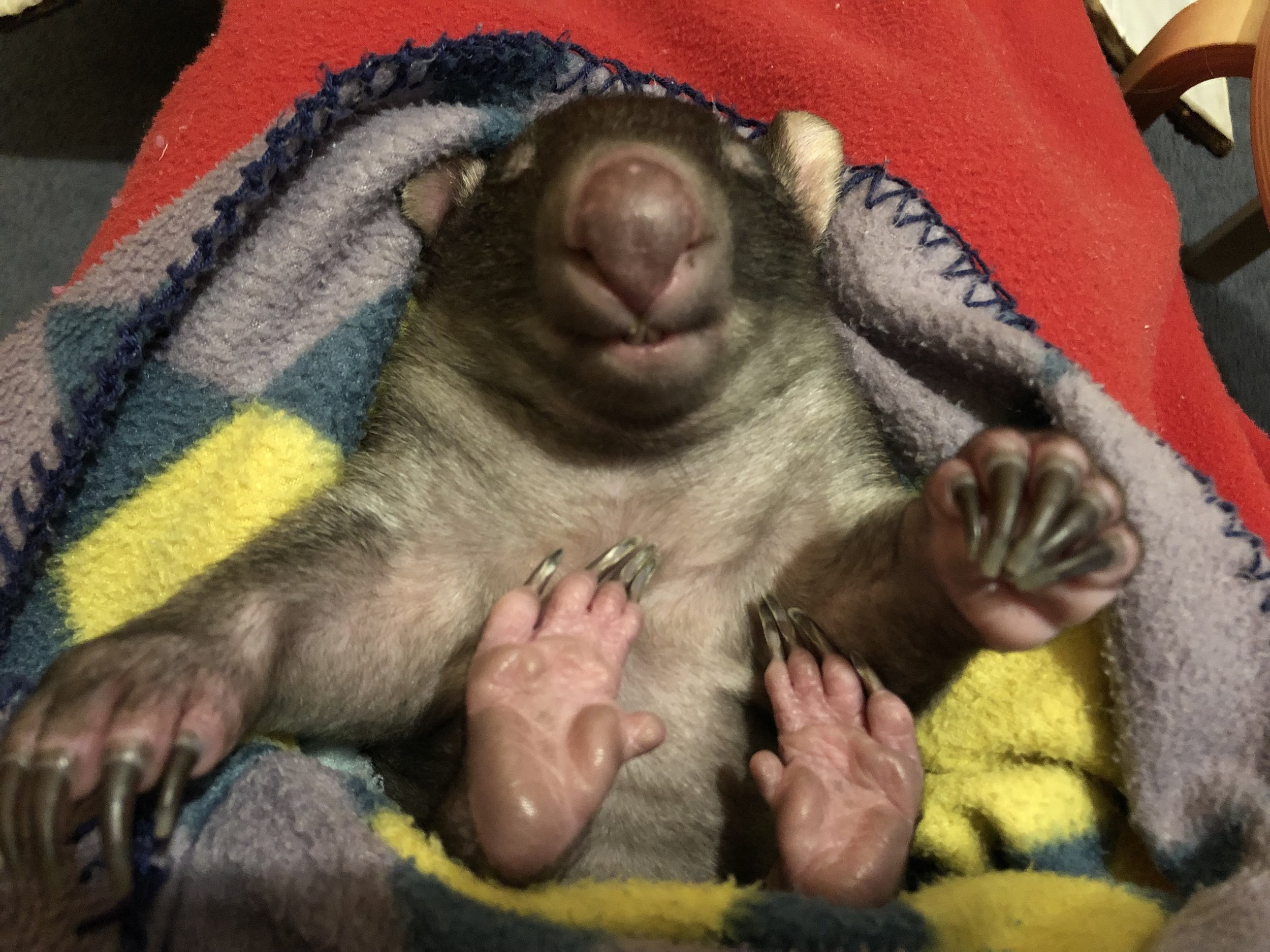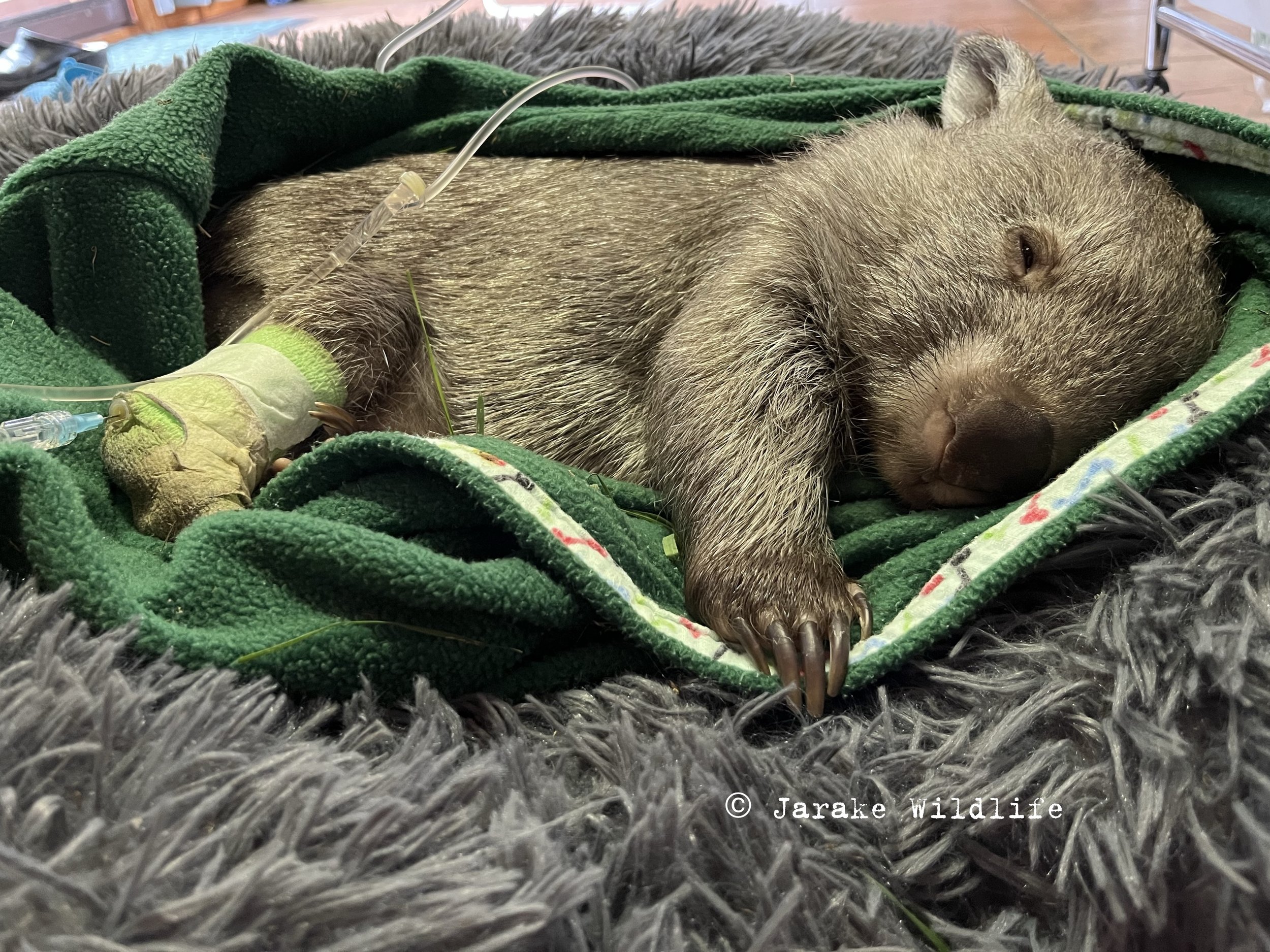information for carers
This section is for licensed carers. If you’re interested in becoming a licensed carer please contact WPSA and we will be more than happy to provide you with further information – info@wombatprotection.org.au
Caring for Bare Nosed wombats
Shirley Lack has put together this comprehensive guide on how to care for Bare Nosed wombat. Shirley believes the provision of good-quality information to wildlife carers is essential in improving the level of hand-rearing and rehabilitation amongst wildlife carers.
This guide is an important tool for carers rearing juvenile wombats and treating adult wombats.
Releasing Bare nosed wombats back into their wild habitat
Depending on when you take in a wombat, it can take nearly two years to raise from care to release. It’s a long commitment and one that needs lots of love and dedication.
Download our guide for some tips and advice on how to release our furry friends back into the wild.
RECTAL PROLAPSE CAUSED BY SEVERE STRAINING MAY HAVE SEVERAL CAUSES
One Veterinarian R W Furneaux gives an inside into rectal prolapse and its causes in Bare nosed wombats.
Diarrhoea in Orphaned Wombats – What You Need to Know
This joey was housed incorrectly, he was exposed to and had to interact with barking dogs. He was passed around to many different new homes and people and his buddy died. When this joey became so unwell he could not even stand, he was finally passed to an experienced licenced wildlife sanctuary. Despite receiving immediate correct veterinary diagnosis and treatment, he could not be saved. It was too late, and he died unnecessarily from a normally easily treatable condition.
See below information to help you deal with diarrhoea in wombats as a carer.
Code of Practice for Injured, Sick and Orphaned Wombats
This white paper has been published by State of NSW and the Office of Environment and Heritage NSW in July 2022. The paper talks to the minimum standards of wildlife care in NSW.
The Code is designed for everyone involved in the activity of rescuing, rehabilitating and releasing wombats. It has been developed to protect the welfare of wombats in care and to contribute to the conservation of wild wombat populations.
Toxoplasmosis
Toxoplasmosis is a zoonotic disease caused by an intracellular protozoan parasite, Toxoplasma gondii. The feline is the definite host and the only species that produce and shed oocysts. It can infect all warm-blooded animals (including people) where they then act as an intermediate host. Marsupials are highly susceptible to infection and Toxoplasma becomes clinically significant if animals are stressed, which can happen to them in captivity.
Wildlife teats
Flow and strength of a teat is vital in raising an orphaned joey to a healthy adult wombat ready for release back into the wild. Therefore, it’s important to get the right teat for every life stage of a growing joey.
There are many places you can purchase teats, the link below is just one recommendation that specialises in making them.







